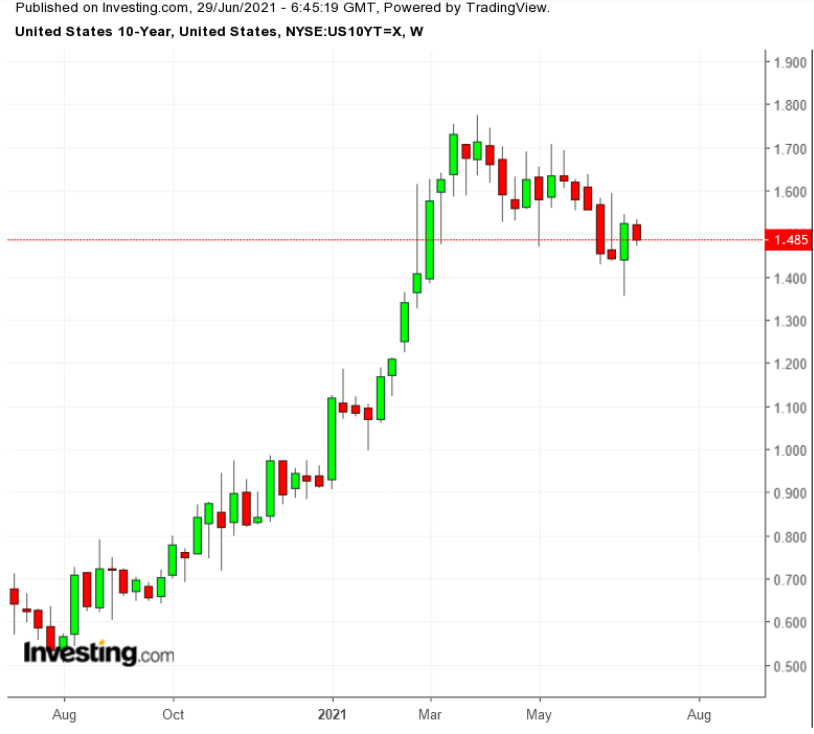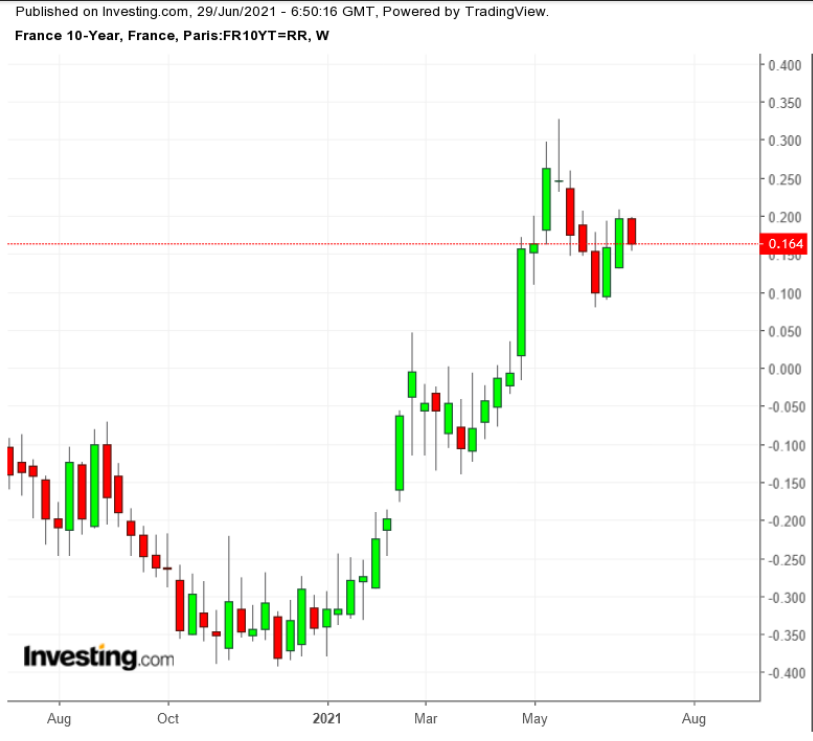Treasury investors have been lulled into a complacency that may or may not be well-founded. The June jobs report, due out Friday, will grab some attention but is unlikely to lead to any strong shift in Treasury yields.
The consensus forecast calls for a gain of about 700,000 jobs in June, with unemployment declining slightly to 5.7% from 5.8%. States that are opting out of federal support for extended unemployment benefits, including an extra $300 a week, are showing stronger jobs gains—perhaps not surprisingly.
The federal support ends Sept. 6, but half the states are opting out well before then. Four states stopped on June 12, seven more on June 19, 10 more this past weekend, with the last four stopping benefits in July. Analysts expect the impact will be most significant in July.
Two-Speed Taper; Escalating Debate Over 'Transitory' Inflation
The Federal Reserve seems to be moving towards a two-speed taper of its bond purchases, currently $80 billion a month for Treasuries and $40 billion in mortgage bonds. The idea is they will start cutting back on the mortgage bonds first amid fears that those purchases are fueling a real estate bubble in a hot market.
Meanwhile, the debate over how transitory the increase in inflation will be is drawing a bigger crowd, as more economists weigh in about the risks if the Fed is wrong in its assessment.

Yield on the benchmark 10-year Treasury surged above 1.5% on Friday after the report of a strong year-on-year gain in the personal consumption expenditure index, the Fed’s preferred measure of inflation. The index rose 3.4% in May, the strongest gain since 1992.
By Monday, however, investors had shrugged off any concern and the yield fell back below 1.5%.
Also last week, worries about whether lawmakers in both parties had agreed with President Joseph Biden on an infrastructure spending package of $1 trillion-plus rose and fell after Biden first announced the agreement and hours later said it would have to be coupled with other legislation on trillions in new spending for him to sign it. Only on Saturday, when Biden clarified he did not mean he would veto the infrastructure bill did concerns ebb.
Who knows what will happen? The ups and downs are likely to continue for weeks as Congress is riven not only by hostility between Democrats and Republicans, but also by disagreements within both parties. Against this backdrop, the measured reassurance of Fed officials seems to soothe investors.
French Government Bonds Unmoved By Regional Elections
The second round of French regional elections produced fodder for pundits but hardly affected bond investors as the high abstention rate—some 65%—indicated the vote on the relatively minor responsibilities of regional governments may not accurately reflect of public sentiment.

Neither the governing party of French President Emmanuel Macron nor the far-right party of Marine Le Pen won control of any of the 12 regions as traditional parties on the center-right and left surged ahead.
Xavier Bertrand, a provincial head in northern France, emerged in a strong position to claim the presidential nomination in what used to be the Gaullist party, challenging polls that indicate the runoff round in next year’s vote will once again pit Macron against Le Pen.
The conservatives, now called the Republicans, held onto all seven of the regions they control, prompting party officials to hail a comeback after the loss in Macron’s 2017 victory.
Yield on the benchmark 10-year French government bond rose briefly to near 0.20% on Friday, ahead of the vote, but subsided back below 0.16% in Monday trading.
